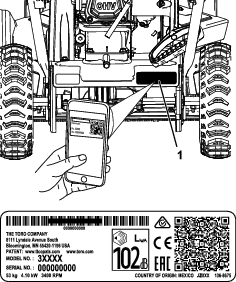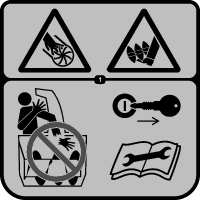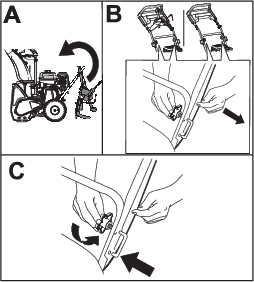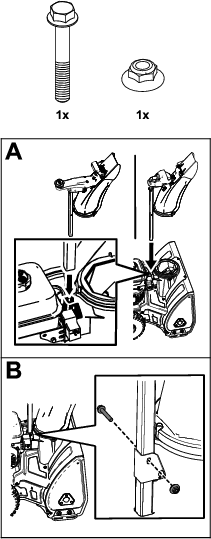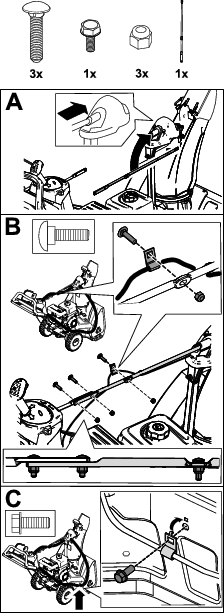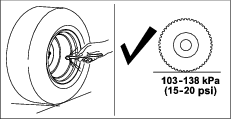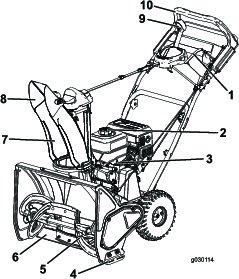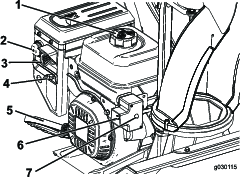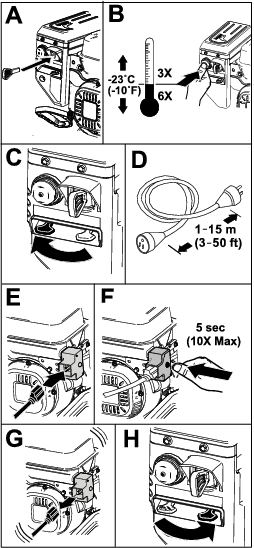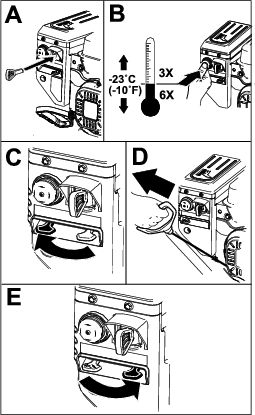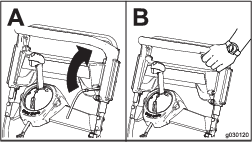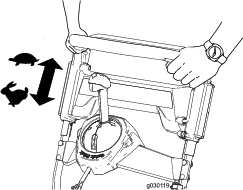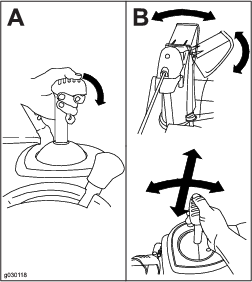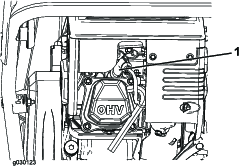Maintenance
Recommended Maintenance Schedule(s)
| Maintenance Service Interval | Maintenance Procedure |
|---|---|
| After the first hour |
|
| After the first 2 hours |
|
| Before each use or daily |
|
| Every 100 hours |
|
| Yearly |
|
| Yearly or before storage |
|
Maintenance Safety
Read the following safety precautions before performing any maintenance on the machine:
-
Before performing any maintenance, service, or adjustment, shut off the engine and remove the key. If major repairs are ever needed, contact an Authorized Service Dealer.
-
Check all fasteners at frequent intervals for proper tightness to ensure that the machine is in safe working condition.
-
Do not change the governor settings on the engine.
-
Purchase only genuine Toro replacement parts and accessories.
Checking the Engine-Oil Level
| Maintenance Service Interval | Maintenance Procedure |
|---|---|
| Before each use or daily |
|
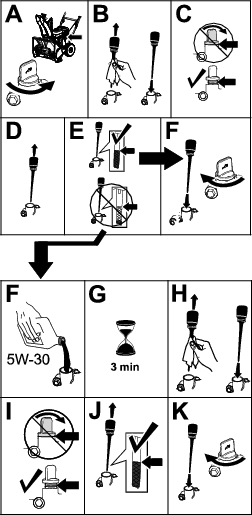
Checking and Adjusting the Skids
| Maintenance Service Interval | Maintenance Procedure |
|---|---|
| Yearly |
|
Check the skids to ensure that the auger does not contact the paved surface. Adjust the skids as needed to compensate for wear (Figure 17).
-
Loosen the skid bolts.
-
Slide a 5 mm (3/16 inch) board underneath the scraper.
Note: Using a thinner board results in a more aggressive scraper; using a thicker board results in a less aggressive scraper.
-
Lower the skids to the ground.
Note: Ensure that the skids are flat on the ground.
-
Tighten the skid bolts.
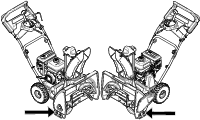
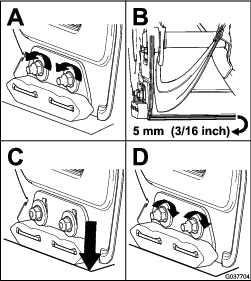
Inspecting the Throwing Edges
| Maintenance Service Interval | Maintenance Procedure |
|---|---|
| Yearly |
|
Before each session, inspect the throwing edges for wear. When a throwing edge has worn down to the wear-indicator hole, have an Authorized Service Dealer replace the throwing edges (Figure 18).
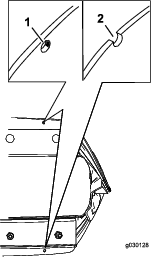
Changing the Engine Oil
| Maintenance Service Interval | Maintenance Procedure |
|---|---|
| After the first 2 hours |
|
| Yearly |
|
If possible, run the engine for a few minutes before changing the oil to warm it. Warm oil flows better and carries more contaminants.
| Engine oil capacity | Model 36002: 0.50 L (17 fl oz); Model 36003: 0.59 L (20 fl oz) |
| Oil viscosity | Refer to Figure 20. |
| API service classification | SJ or higher |
-
Move the machine to a level surface.
-
Place an oil-drain pan under the oil-drain plug, remove the oil-drain plug, and tip the machine backward and drain the used oil in the oil-drain pan (Figure 19).
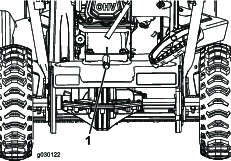
-
After draining the used oil, return the machine to the operating position.
-
Install the oil-drain plug and tighten it securely.
-
Clean around the oil-fill cap.
-
Use Figure 20 to select the best oil viscosity for the outdoor temperature range expected:
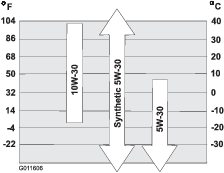

Replacing the Spark Plug
| Maintenance Service Interval | Maintenance Procedure |
|---|---|
| Every 100 hours |
|
Warning
Replacing the spark plug while the engine is hot can result in burns.
Wait until the engine is cool to replace the spark plug.
Use a Toro spark plug or equivalent (Champion® RN9YC or NGK BPR6ES).
Adjusting the Auger Cable
| Maintenance Service Interval | Maintenance Procedure |
|---|---|
| After the first 2 hours |
|
| Yearly |
|
If the drive belt slips or squeals under a heavy load, adjust the auger cable.
-
Loosen the nut on the lower cable clamp, but do not remove it (Figure 24).
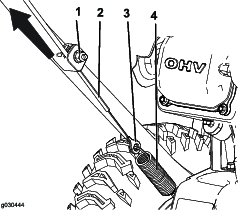
-
Pull the cable up to remove some slack (Figure 24).
Important: Do not remove all the slack from the cable. Removing all the slack from the cable prevents the auger from stopping properly.
-
Hold the cable in place and tighten the nut (Figure 24).
Adjusting the Transmission Cable
| Maintenance Service Interval | Maintenance Procedure |
|---|---|
| After the first 2 hours |
|
| Yearly |
|
If the wheels easily stall out, or if the wheels drive without engaging the self-propel handle, adjust the transmission cable.
-
Loosen the nut on the upper cable clamp, but do not remove it (Figure 25).
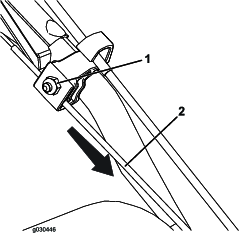
-
Pull the cable down to remove most of the slack in the cable (Figure 25).
Important: Do not remove all the slack from the cable. Removing all the slack from the cable may cause the wheels to engage without engaging the self-propel handle.
-
Tighten the nut (Figure 25).
